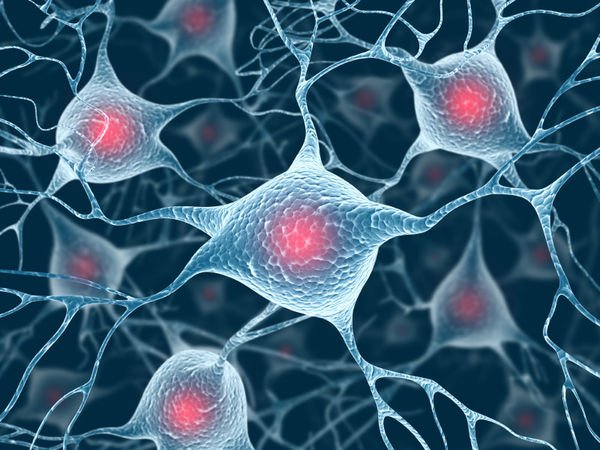What is Motor Neurone Disease?
Motor Neurone Disease (MND) is a neurodegenerative condition characterised by the gradual decline in motor function, leading to significant physical and psychosocial challenges for affected individuals.
A person with MND will usually require assistance from a number of healthcare professionals. The treatment regimen for MND necessitates a thorough, interdisciplinary approach, with the nurse serving as a central coordinator. Given their intimate understanding of the patient's needs through daily interactions, nurses play a pivotal role in orchestrating the delivery of care.
Nursing Station's expert nurses provide comprehensive care to MND patients, focusing on maximizing function and improving quality of life.
Motor Neurone Disease Services
Nurses play a crucial role in supporting individuals with Motor Neurone Disease (MND) by providing comprehensive care across various domains. Here's how nurses assist MND patients with monitoring, managing, and supporting specific aspects of their condition:
Medications
Nurses oversee medication regimens, ensuring adherence to prescribed medications and monitoring for any adverse effects or interactions.
Mobility
Nurses assess mobility limitations and develop strategies to optimise mobility, including recommending assistive devices and implementing mobility exercises.
Navigate NDIS
Nurses guide patients through the National Disability Insurance Scheme (NDIS), assisting with the application process, advocating for necessary supports, and ensuring eligibility criteria are met.
Monitor eating, drinking, and swallowing
Nurses closely monitor the patient's ability to eat, drink, and swallow safely, implementing interventions such as modified diets or thickened liquids as needed to prevent aspiration.
Monitor breathing
Nurses monitor respiratory function, recognising signs of respiratory compromise and facilitating access to respiratory support devices such as non-invasive ventilation (NIV) when necessary.
PEG feeding
Nurses oversee percutaneous endoscopic gastrostomy (PEG) feeding, ensuring proper placement, monitoring for complications, and providing education and support to patients and caregivers.
Pain management
Nurses assess and manage pain using a variety of pharmacological and non-pharmacological interventions, tailoring the approach to meet the individual needs of the patient.
Cognitive changes
Nurses monitor for cognitive changes and provide support and education to patients and families regarding cognitive impairments associated with MND.
Speech and communication
Nurses collaborate with speech pathologists to assess and support communication needs, implementing strategies such as augmentative and alternative communication (AAC) devices and communication boards.
Coordination of Care
Nurses help arrange appointments with other healthcare professionals like neurologists, physiotherapists, occupational therapists, dieticians, and speech therapists. They make sure everyone involved in the patient's care stays informed about any changes in their condition or treatment plan. This teamwork ensures the patient gets the best possible care.
In addition to direct patient care, nurses play a crucial role in facilitating timely referrals to the appropriate health professionals and services. This ensures rapid response, coordinated action, regular review, and access to timely interventions and assistive technology, all of which are vital in optimizing outcomes for individuals living with MND.
Nutrition
Nurses assess nutritional status and provide guidance on optimising nutrition, including dietary modifications and supplementation, to address swallowing difficulties and maintain adequate caloric intake.
End-of-Life Care
In advanced stages of MND, nurses play a pivotal role in providing compassionate end-of-life care. They ensure symptom control, facilitate discussions about palliative care and advance directives, and offer emotional support to patients and their families during this challenging transition.
Stages of Deterioration and Nursing Interventions
Providing nursing care for individuals with MND in the familiarity and comfort of their homes requires a responsive approach that adapts to the evolving demands of the disease as it advances through its various stages.
Stage 1: Early Stage
During the early stage of MND, patients experience mild weakness in limbs and occasional muscle cramps. The nursing team focuses on education regarding the disease progression, implementing strategies for energy conservation and preserving independence in activities of daily living (ADLs). Assistive devices such as mobility aids and adaptive equipment can be introduced to support mobility.
Stage 2: Moderate Stage
As MND progresses, patients face increased difficulty with mobility and communication. The nursing team provides intensive rehabilitation support, including a range of motion exercises, strengthening exercises, and speech therapy to maintain function and prevent contractures. Strategies for managing dysphagia and optimising nutrition are implemented to ensure adequate intake and prevent aspiration.
Stage 3: Advanced Stage
In the advanced stage of MND, patients experience severe muscle weakness and respiratory compromise. The nursing team focuses on optimising respiratory function through the use of non-invasive ventilation (NIV) and positioning techniques to enhance breathing. Palliative care measures can be initiated to manage symptoms such as pain, dyspnea, and anxiety, ensuring comfort and dignity.
Despite the challenges posed by the progressive deterioration of MND, the nursing team provides comprehensive and compassionate care to clients, supporting them and their families through each stage of the disease. By focusing on optimising comfort, maintaining function, and enhancing quality of life, the nursing team navigates the complexities of MND deterioration with expertise and empathy, ensuring the clients dignity and well-being until the end of their journey.


